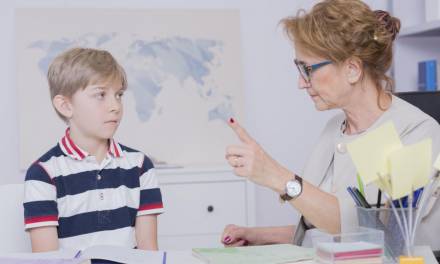There could be an increase of 250% in child protection referrals that need to be investigated and kept safe when lockdown is eased further, according to the head of the largest child protection department in the UK.
Matt Dunkley, corporate director for children and young people at Kent County Council, said: “What we are looking at is a huge surge in September in children needing to be seen, families needing to be assessed, when they are at the end of their tether after six months being locked down or being out of the eye of their school… that leaves us with a huge problem.”
EDBlog previously reported that teachers were feeling “stressed and overwhelmed” about a surge in safeguarding concerns post-lockdown. But what do the latest revelations mean? This blog post explains.
Child protection referrals ‘face their biggest challenge’
In Kent alone, more than 10,000 families are being supported by a social worker.
Mr Dunkley said:
In September, just when the money from the Government is drying up, the extra money that they’ve given for coronavirus will be beginning to dry up. So children’s services are facing their biggest challenge.
Child protection referrals during lockdown
Child protection referrals have continued to operate during lockdown, supporting families that are already known to the services, as well as taking on new cases.
In one example, Melanie Bolton’s 11-month-old baby Kaycee Lou Kennedy was found dead at her home in Ramsgate in April, at the height of the pandemic. The post-mortem and inquest, which had been delayed because of the pandemic, found it was a tragic accident. During the night, Kaycee had become positioned in a way that she couldn’t breath.
She worked with social worker, Dee McMahon who said to Sky News:
The culmination of a bereavement in the family tied in with the coronavirus crisis is just so unexpected. It’s a minefield to get through, to explore the emotions, and it’s had such a knock-on impact for the family.
Melanie was grateful to the help she had received, adding:
Dee has been amazing, she’s kept me alive.
Outcome of lack of funding on these types of cases
There are concerns that families will not be able to receive this level of support as referral numbers climb.
Prior to the pandemic, councils were warning of a £3bn gap in funding for child services.
And numbers of children in care are already at a 10-year-high.
Children’s services departments are responsible for taking children into care, supporting children at home and families with disabled children with complex needs.
In response, the Government have said:
Throughout the pandemic we have prioritised the safety and wellbeing of vulnerable children, which is why we enabled them to continue attending school, nursery or college.
We’ve given councils £3.7bn of un-ringfenced funding to tackle the pressures they face. From this, Kent County Council alone is receiving £115m, and can also access compensation from a new Government scheme for irrecoverable income losses such as sales, fees and charges.
How EDClass can help with safeguarding and support
Schools are responsible for safeguarding of pupils when they’re placed in an alternative provision. All providers must have safeguarding policies and processes which should include:
- A robust process for all staff (including designated and safeguarding lead) to record any discussions or actions in terms of safeguarding concerns.
- A secure, individual safeguarding file. This should include all information and actions for identified safeguarding issues.
- The process identified for staff to pass on all safeguarding concerns to their designated safeguarding lead or provider manager.
- The process for which the safeguarding lead to refer all concerns to Children’s social care.
- Referring any child or young person not on school roll to the Children Missing from Education Team.
EDClass can support safeguarding – with a range of features built in to our online platform.
EDClass+ features eyes-on learning. This means that with a webcam enabled, teachers can report any concerns they may see onscreen. Further, learners can also ask for assistance via face to face, verbal chat, instant chat, written chat and in question and answer sessions.
All of our staff are enhanced DBS checked and have received regular and extensive safeguarding training.
We can support with safeguarding along with provision of online learning. 11,000 lessons are available in order to support students up to KS4 and provide fully-inclusive learning for all.
For more information call 01909 568 338.










